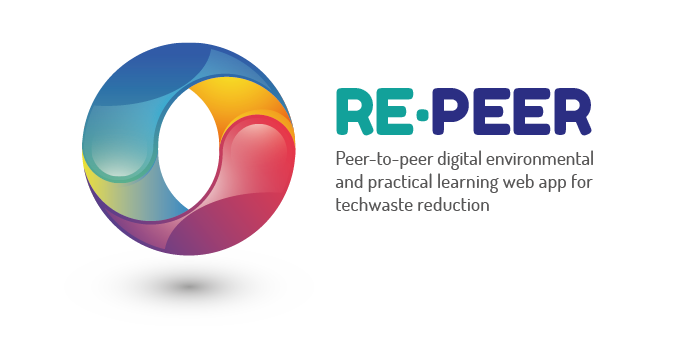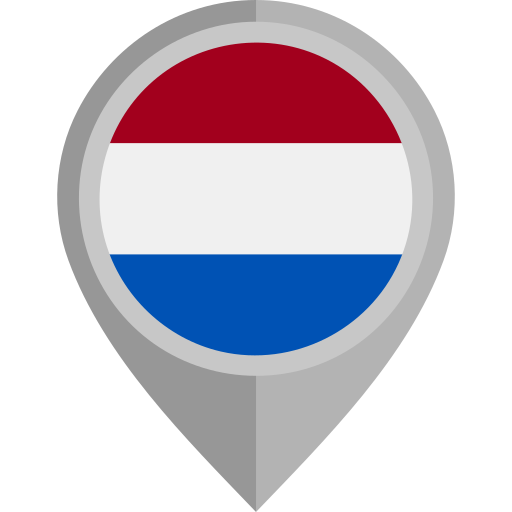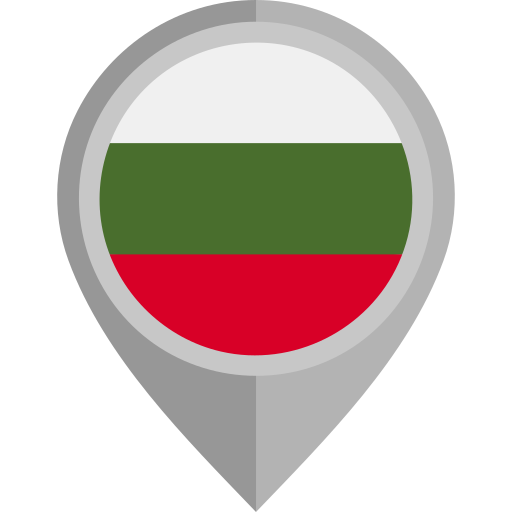RE-PEER “Peer-to-peer digital environmental and practical learning web app for techwaste reduction and between SMEs, adult centres and policy makers in tech items dismissal“
BACKGROUND OF THE PROJECT
According to the UN, only 20% of global techwaste is recycled each year, despite 66% of the world’s population being covered by techwaste legislation. In Europe, households have shown little awareness on the so-called waste electrical and electronic equipment (WEEE) or known as techwaste – each person produces 20 kgs of techwaste per year, and ONLY an average of 35% of it is recycled. Reaching the EU objective of 85% is impossible unless consumers’ action is taken seriously into consideration with widespread educational plans to enhance circular economy and material regeneration. This results in the huge loss of valuable and critical raw materials from the supply chain and causes serious health, environmental and societal issues through illegal shipments of waste to developing countries.
In this context, the project RE-PEER: “Peer-to-peer digital environmental and practical learning web app for techwaste reduction and between SMEs, adult centres and policy makers in tech items dismissal” aims to empower adults and adult educators in their everyday life, by:
– Developing a theoretical and practical framework of digital environmental learning/teaching for adult centres, defining the main pedagogical competencies for adult educators and the main circular economy competencies applied at tech waste correct management based on REUSE, REDUCE, RECYCLE
– Elaborating simple and at-hand training material for adult learners in reusing, reducing, recycling techwaste and to raise awareness of the techwaste problem orienteering them in everyday scenarios involving technology
– Introducing a gamified pedagogical web app focused on everyday scenarios to trigger the interest of adults and make them acquainted with the concepts of circular economy competencies by testing and learning on everyday scenarios.
PROJECT OBJECTIVES & RESULTS
Throughout 2 years of project implementation, the RE-PEER’s Transnational Partnership set the following results and outcomes to be achieved:
- Project Result 1: Circular economy & digital education framework for adult educators and adults
- Project Result 2: Training for Trainers materials and guidelines for sustainable adult centres as “repair cafés”
- Project Result 3: Environmental digital education training material for Adult Learners
- Project Result 4: Pedagogical quest-based web app to gamify circular economy scenarios
- C1: Short-term joint staff training events in Slovenia for 14 participants from Partners’ Staff
- C2: Blended mobility in Bulgaria for 15 Adult Learners from the Partner Countries
- Multiplier Events in each Country (E1-E7): Partners will organize a set of 7 final dissemination events to reach at least 140 attendees in total (20 in each Country)
TARGET GROUPS
RE-PEER will involve in the different set of activities that will be implemented, the following mix of complementary Target Groups (participants), to be involved and selected within the immediate network of the Partnership:
- Adult Learners: among those in need of improving their environmental digital skills, that we generally define as adult households who are <40 indicated as Y&Z generations (defined as “lost generations”) living in the operating areas of the project partners;
- Adult Educators:. In need of learning or improving their competences about the negative impact of techwaste management and regarding the practical competencies on techwaste recycle, reuse, reduce, that can support them to better plan their educational programmes and blend digital education with more sustainable and practical technological capabilities around;
- Adult Centres technical staff in fieldwork;
- Any other interested parties in learning more about techwaste management and green practices in education and in the work-place.
PARTNERSHIP

This project has been funded with the support of the European Commission. This publication reflects the views only of the author and the Commission cannot be held responsible for any use which may be made of the information contained therein.
Project No: 2021-1-SE01-KA220-ADU-000026264







